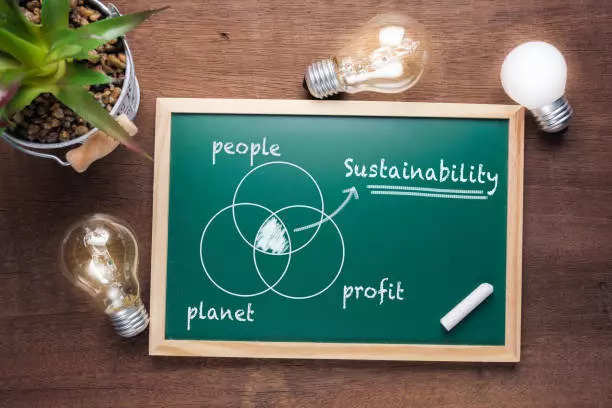[ad_1]

Amidst rapid market changes, boards are making changes to how they approach their composition, governance and metrics tracking. New findings from Hedrick & Struggles, a premier provider of global leadership advisory and on-demand talent solutions, in partnership with Boston Consulting Group (BCG), one of the world’s leading management consulting firms, and the INSEAD Corporate Governance Centre, a global INSEAD center of excellence for research, innovation, and impact in corporate governance, reveal that though significant progress has been made on boardroom awareness and acceptance of the sustainability agenda, many still wrestle with integrating sustainability fully into their company strategy.Capacity challenges and self-declared lack of expertise at the board level has revealed a gap between intentions and prioritisation of the environmental, social, and corporate governance (ESG) agenda. 60% of respondents from Asia Pacific and 79% of those from Oceania said their board had a clear understanding of the strategic opportunities and risks that sustainability presents. However, only 24% of board members from Asia Pacific and 16% from Oceania responded that they had sufficient knowledge to activate and steer action on sustainability issues. These challenges are a global phenomenon, with consistent data shown across regions and sectors, despite the variance in traditions of corporate governance and responsibility. Moreover, in Asia Pacific, 37% of respondents reported not having a dedicated head of sustainability or function in monitoring and advocating the company’s sustainability strategies.“Businesses in Asia Pacific are witnessing a shift in expectations which has created demand for new competency requirements among board members,” said Guy Farrow, Regional Managing Partner of the CEO & Board of Directors Practice for Asia Pacific and the Middle East at Heidrick & Struggles. “It is now recognized that ESG issues have the potential to destroy or create company value, so boards must ensure they have the right skills around the table to navigate emerging opportunities and challenges.”
Sustainability disconnect: understanding versus achievement
More than ever, there is an increased responsibility on boards to ensure sustainability is integrated across the entire business. Compared to their counterparts in the US and Europe, respondents from the Asia Pacific and Oceania region discover, acknowledge, and respond more effectively towards embedding sustainability, with 91% of respondents from the region somewhat or strongly agreeing that their company has a clear understanding of how long-term trends impact the future value of their company.
Yet, the tension between the importance of sustainability, and the time and effort required to consistently give it the attention needed to prioritise it is a persistent theme. Divergent perspectives from board members on strategic and executional considerations make it hard to witness sustainability strategies carried out in practice. 50% of Oceania and 62% of Asia Pacific respondents believe the complexity of the transformation to be the primary challenge in adhering to sustainability requirements.
“Sustainability has become part of boards’ fiduciary duty and steadily gaining priority on boards’ agenda as its importance continues to permeate across the fabric of business and society,” said Sonia Tatar, Executive Director of the INSEAD Corporate Governance Centre. “More than ever, the weighted responsibility on boards is pointing to the imperative for targeted education to bridge the knowledge gaps which are fundamental in driving governance transformation starting from non-conventional stewardship from the top to collective leadership across the various stakeholders and within the organizational spectrum that delivers sustainable impact and actions.”
Balancing long-term strategy and operational execution
Despite challenges in actioning sustainability plans and objectives, data shows that boards are indeed spending more time evaluating strategies and understanding the bigger picture. The majority of Asia Pacific (78%) and Oceania (91%) respondents dedicate a moderate to great deal of their time to evaluating the company’s long-term strategy risks and opportunities.
“We believe that sustainability is a board level topic,” adds Vincent Chin, Senior Partner and Managing Director, Head of the Social Impact Practice Area for Asia Pacific, and Global Vice-Chair of the Public Sector Practice Area at BCG. “Meeting regulatory expectations is the baseline expectation. The role of the board now is to look ahead and find the dynamic advantage to take market share from laggards to strengthen their brands. The stimulus for board members should be the opportunity and urgency to steer the firm in these altered circumstances for the better.”
Though fully integrating sustainability into strategy and board operations is complex, there is a clear path forward for boards. Sharpening governance, digging deeper into the sustainability issues in conjunction with other issues facing the company, and modeling strong personal leadership can enable boards to rise to the challenge.
The Heidrick & Struggles, BCG and INSEAD Corporate Governance Center survey was conducted in early 2023, capturing the insights of 879 respondents from over 25 countries and 19 industries, including Asia Pacific (Bangladesh, China, India, Japan, Malaysia, Pakistan, Singapore, Vietnam) and Oceania (Australia and New Zealand). Click here to view the full report.
[ad_2]
Source link

